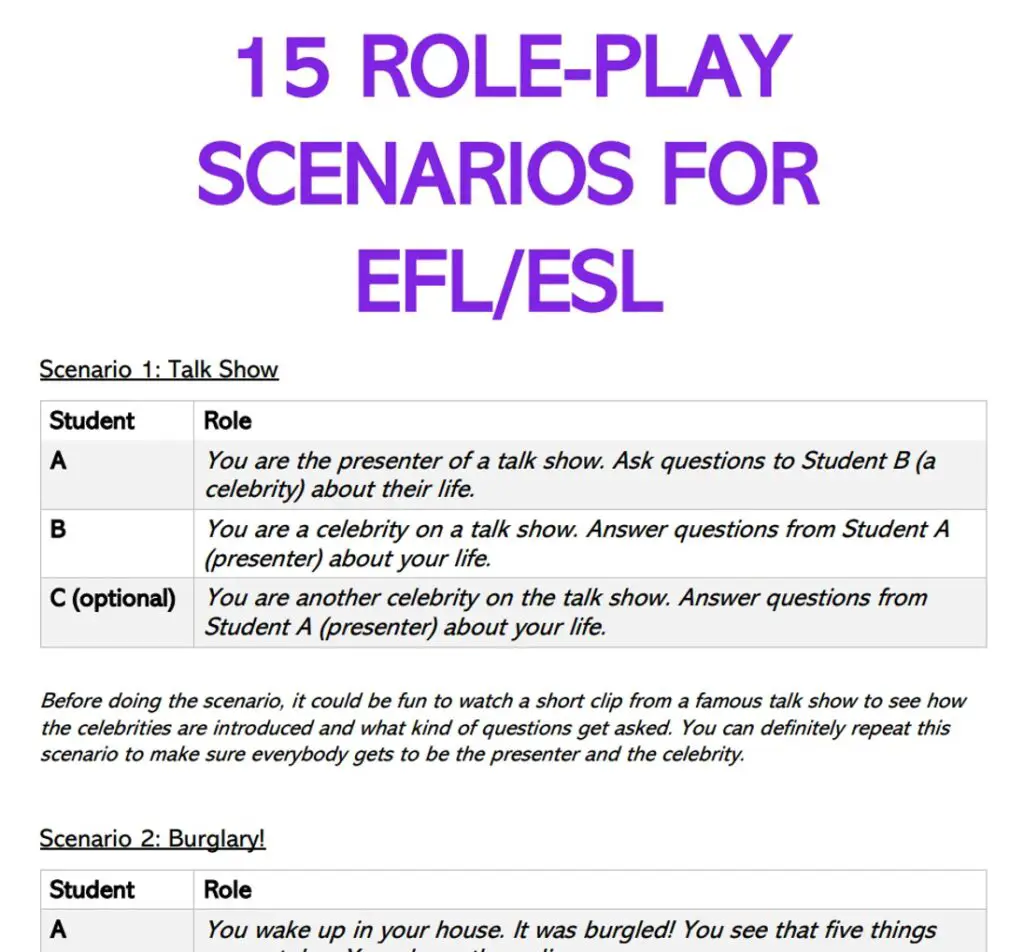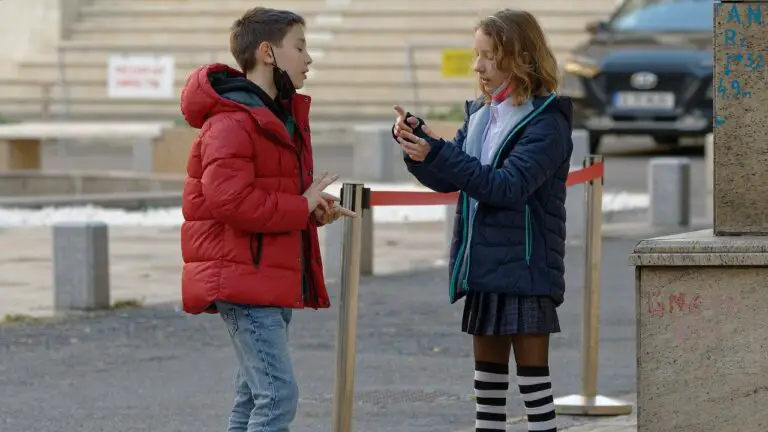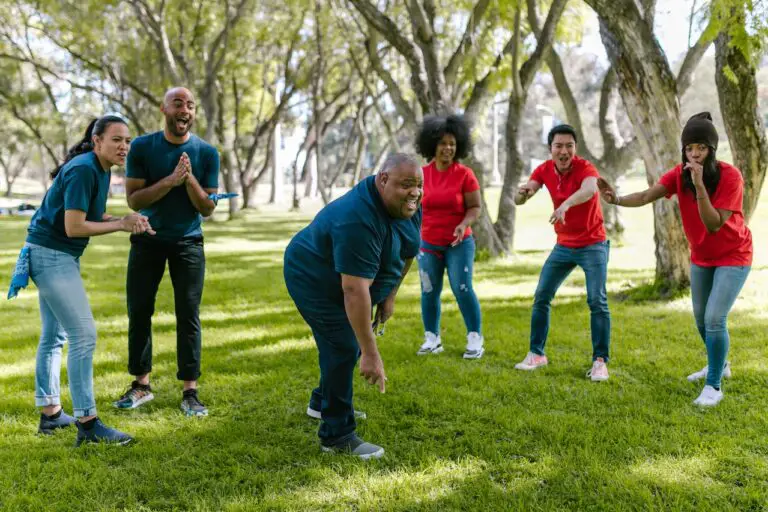Role play with adults in EFL/ESL helps break confidence barriers and provides relevant ways to use English. Not only that, but it’s a lot of fun.
It’s different to role play with children where there’s lots of energy and a fair dose of silliness. Instead, it’s more measured and complex.
You can use their maturity and social skills to improvise some really creative situations, and while the subject matter is often more serious, there’s still room to have a laugh.
Thinking up new scenario ideas is a challenging process, so in this list I’ve given you five that are tried and tested in my own teaching. They’re ideal for adults of all ages, and you could even use them with older teenagers.
Each role play is designed for 2 students (A and B), with an optional supplementary third role (C) if you need to make groups of 3.
If you’re unsure about how to teach role play to adults in EFL/ESL, you’d best read my article Teaching EFL/ESL to Teenagers & Adults With Role Play.
Once you’ve got started with role play, one of the main challenges is coming up with new challenging and unique scenarios. Fortunately I’ve got you covered on that! Beyond the five in this article, I have a free eBook of 15 that you can use straight away and I send newsletter subscribers more every month.
Enchanted ESL Role-Play Scenarios
- 15 unique scenarios
- 3 themed scenarios every month
- Access to all scenarios from previous months
- Guidance on how to use role play

1. Broken phone
Something all adults can relate to is the stress of having a broken mobile phone. This scenario plays out the often difficult interactions between customers and customer service when trying to reach a solution.
| STUDENT | ROLE |
|---|---|
| A | Your new phone has stopped working. You go to the shop where you bought it and want your money back so you can buy a new one. |
| B | You work in the phone shop. The policy is not to give customers their money back, but instead insist the phone get repaired. |
| C (optional) | You can either be the friend of student A and help them in the argument, or you can be student B’s manager. |
TIPS
- Like with all role plays, encourage students to improvise and keep the story going.
- As it’s an argumentative scenario, establish that there’s no “winner” and the idea is to get a good dialogue going.
- Before the role play, brainstorm some phone related vocab and any expressions relevant to the scenario like “I’m afraid that won’t be possible” or “I demand my money back!”
2. Learning a new sport
When adults want to learn new things, they often ask their friends their opinion. This scenario practices that as well as digging into some more advanced sport-related vocab.
| STUDENT | ROLE |
|---|---|
| A | You want to learn a new sport, but most of them don’t sound interesting. You ask your friend(s) (students B and C) for some recommendations. |
| B | You speak to your friend (student A) about which new sport they could learn. Give them lots of great ideas. Explain why you think the sports you suggest are suitable. |
| C (optional) | You speak to your friend (student A) about which new sport they could learn. Give some alternative ideas to student B and explain why they’re better. |

TIPS
- Make sure students B and C give lots of good reasons why the sport they suggest is great. And they can also say why some sports might be a bad idea.
- Encourage students to think of unusual sports. Perhaps elicit a big list of sports before the activity so they have plenty to choose from.
To learn more about eliciting vocab, read How to Elicit Vocabulary in EFL/ESL: 7 Effective Activities.
3. Thunderstruck
Probably the most exciting scenario on this list. I wouldn’t use this one with very shy students who aren’t comfortable getting up and acting out the scene.
For all students: You’re at the top of a mountain when a fierce thunderstorm starts! What do you do?
| STUDENT | ROLE |
|---|---|
| A | You think the best idea to escape the thunderstorm is to run down the mountain as fast as you can. |
| B | You think the best idea to escape the thunderstorm is to find a safe, sheltered place and wait for it to pass. |
| C (optional) | You’re terrified of thunderstorms. You want to call the emergency services to come and rescue you. |
TIPS
- Depending on your students, there’s potential for this to get quite stressful, so remind them it’s all a bit of fun.
- If you use student C’s role and they call the emergency services, let them know it’ll be over half an hour before anyone can rescue them.
- It’s possible they’ll come to a quick resolution, in which case up the stakes by having something dramatic happen – like someone getting struck by lightning!
4. Which restaurant?
Deciding which restaurant to go to is a source of discussion and debate. You can also use this scenario to practice advanced food vocabulary and modal verbs like “should” and “could”.
For all students: you’re going out for dinner with your friends and have to decide which restaurant to go to.
| STUDENT | ROLE |
|---|---|
| A | You really want to go to a Japanese restaurant and get some sushi. |
| B | You would like to go to a Mexican restaurant because you love tacos. |
| C (optional) | You’re a big fan of Italian cuisine and are craving some risotto. |

TIPS
- Switch up the types of restaurant to challenge your students with food they’re not as familiar with.
- This scenario is about negotiation and compromise. Most adults have the maturity to do this kind of task, but in some cases, things might get a bit heated, or someone may back down too quickly. Remind students the stakes are low and the priority is to improve their English.
5. Getting the sofa upstairs
This scenario practices giving instructions and communicating clearly with your partner/team. It also has the potential for plenty of fun.
| STUDENT | ROLE |
|---|---|
| A | You just bought a sofa for your upstairs living room but it’s too heavy for you to carry up the stairs. You ask your neighbour(s) (students B and C) for help lifting it up. |
| B | You are student A’s neighbour and you’re happy to help them move the sofa. |
| C (optional) | You are student A’s neighbour and you’re happy to help them move the sofa. |
TIPS
- While this scenario is imaginary, you can make it all the more engaging by actually setting them a real life task to do as a team. It doesn’t have to be moving a sofa, but you could get them to rearrange the classroom in a certain way.
- When they’re taking the sofa upstairs, throw a spanner into the works by imagining the sofa gets stuck because it’s too big to fit through the space.
If you’d like more great role-play scenarios like these ones, you can get my free eBook of 15 for free right now, and as a newsletter you’ll get more every month. You’ll never run out!
Enchanted ESL Role-Play Scenarios
- 15 unique scenarios
- 3 themed scenarios every month
- Access to all scenarios from previous months
- Guidance on how to use role play

Adapt and adjust to your students
Some scenarios in this list are active and physical while others are more relaxed, just sitting and talking. A variety is always good. Try out different energy levels with your students and see which ones they prefer. Then adapt future role plays to what works best.
With classes of all ages, role play requires students to be comfortable. Adults are often the worst for not wanting to take part in things that might make them look silly, and if that’s the case with your group, tailor scenarios to avoid potential embarrassment.

Feel free to modify everything in this list. Innovate and come up with your own ideas, because ultimately that’s what will benefit your students most.
And remember to have fun. Adult classes can end up being quite dry and boring, but engaging sessions make learning so much more powerful.
For more information and guidance on role play in the EFL/ESL classroom, check out all my articles on the subject:
Why All EFL/ESL Teachers Should Use Role Play Activities
Dramatization vs Simulation vs Role Play: Guide for EFL/ESL
5 Problems to Avoid With Role Play in EFL/ESL + Solutions
How to Teach Children EFL/ESL With Role Play: Best tips
Teaching EFL/ESL to Teenagers & Adults With Role Play
5 Awesome EFL/ESL Role-play Scenarios for Teens (+ tips)
5 Exciting EFL/ESL Role Play Scenarios for Kids (+ tips)
5 Engaging EFL/ESL Role Play Activities for Adults (+ tips)







